Truist Reaffirms Buy Rating on Chipotle Following Recent CEO Appointment

Truist Securities analysts reiterated a Buy rating and $72.00 price target on Chipotle Mexican Grill (NYSE:CMG), viewing the recent appointment of Scott Boatwright as permanent CEO as a positive move for the company. Recognizing Chipotle as a fundamentally operations-focused business, the analysts see Boatwright’s experience as aligning well with the company’s strengths.
Chipotle’s appeal to consumers has remained steady, with a core menu that has largely been consistent since the company’s founding. Recent sales growth has been driven by factors such as seasonal menu innovations, increased digital sales, and stronger marketing efforts.
However, Truist believes Chipotle’s operational improvements have been the primary catalyst for its sustained recovery since its food-safety challenges in 2015-2016. Boatwright, who previously served as Chief Operating Officer since joining Chipotle in 2017, brings extensive experience in operational leadership from his 18-year tenure at Arby’s, where he last held the position of Senior Vice President of Operations.
| Symbol | Price | %chg |
|---|---|---|
| MCD.BA | 18680 | 0.16 |
| FORE.JK | 515 | 0.97 |
| MAPB.JK | 1615 | 0 |
| FAST.JK | 600 | -0.83 |
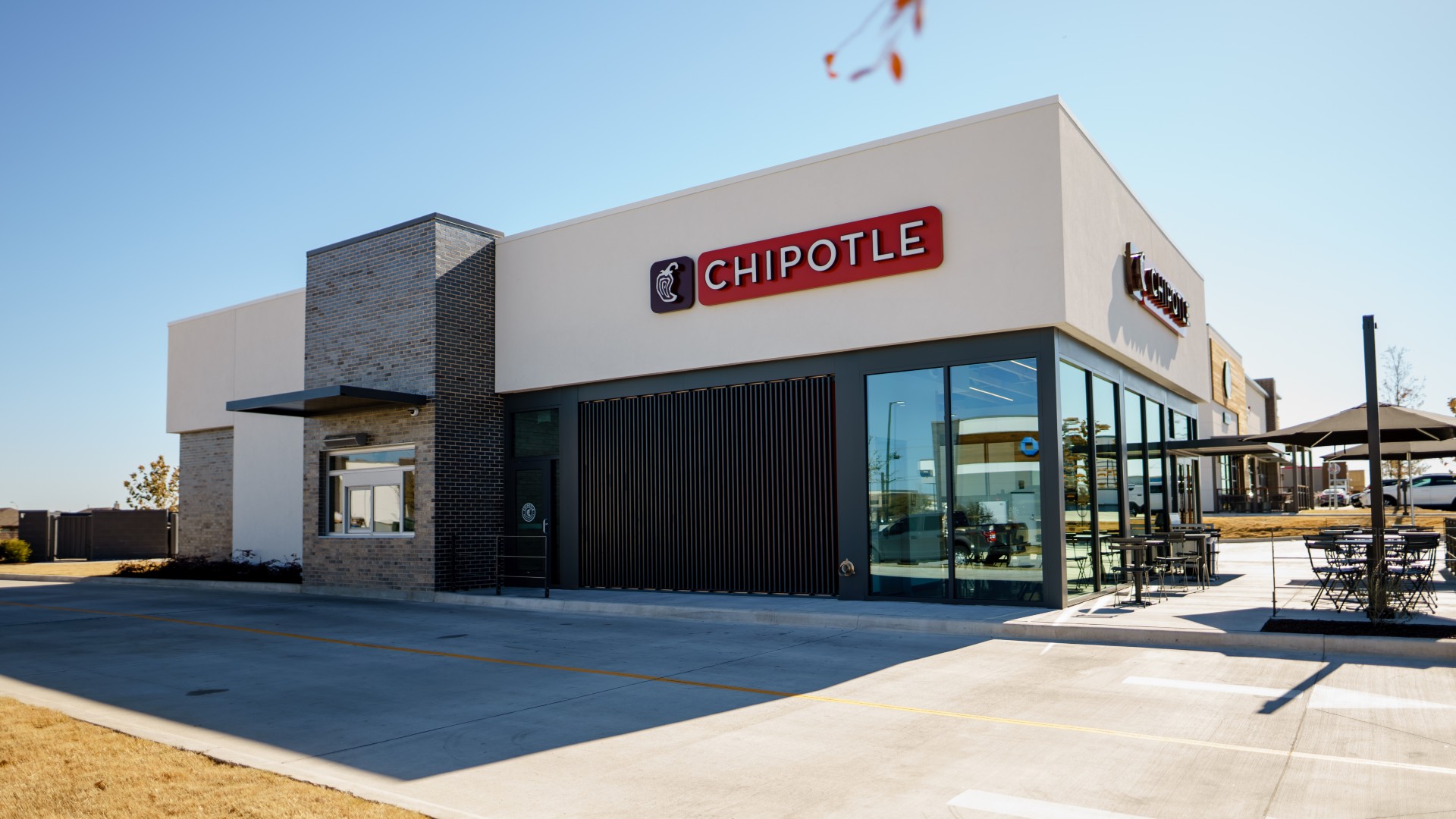
Chipotle Mexican Grill's Market Position and Financial Challenges
- Chipotle Mexican Grill (NYSE:CMG) faces increased competition and a declining stock price, with UBS setting a lower price target.
- The company's leadership transition and economic uncertainty have contributed to a decrease in comparable restaurant sales and investor wariness.
- Despite strong financial fundamentals, Chipotle's high valuation and slowing growth raise concerns among investors.
Chipotle Mexican Grill (NYSE: CMG) is a prominent player in the fast-casual dining sector, known for its focus on fresh ingredients and customizable menu options. Despite its strong brand presence, Chipotle faces stiff competition from other fast-casual chains like Cava Group and Sweetgreen. These competitors are gaining traction, adding pressure to Chipotle's market position.
On October 20, 2025, UBS set a price target of $56 for Chipotle, down from a previous target of $65. At the time, the stock was trading at $41.86, suggesting a potential upside of 33.78%. However, the stock has been on a downward trend, declining over 35% since its peak in December of the previous year. This decline is largely due to slowing sales growth and a high valuation that investors find hard to justify.
The leadership transition at Chipotle, with Scott Boatwright taking over as CEO after Brian Niccol's departure to Starbucks, has coincided with the company's struggles. Under Boatwright, Chipotle has seen a 4% decrease in comparable restaurant sales in Q2 2025. This decline, coupled with economic uncertainty, has made investors wary of the stock's high valuation, which trades at 37 times earnings and 4.7 times sales.
Despite its challenges, Chipotle maintains a strong financial foundation with robust margins and a solid balance sheet. However, the stock's 32% decline this year contrasts sharply with the S&P 500's 13% rise. Even Starbucks, which also faced challenges, experienced a smaller decline of 12%. This disparity highlights the market's concerns about Chipotle's growth prospects and valuation.
Chipotle is expanding internationally and introducing new menu items to drive growth. Yet, these efforts have not alleviated concerns about its premium valuation amid moderating growth and traffic trends. Investors seeking less volatile options might consider alternatives like the Trefis High Quality Portfolio, which has outperformed the S&P 500.
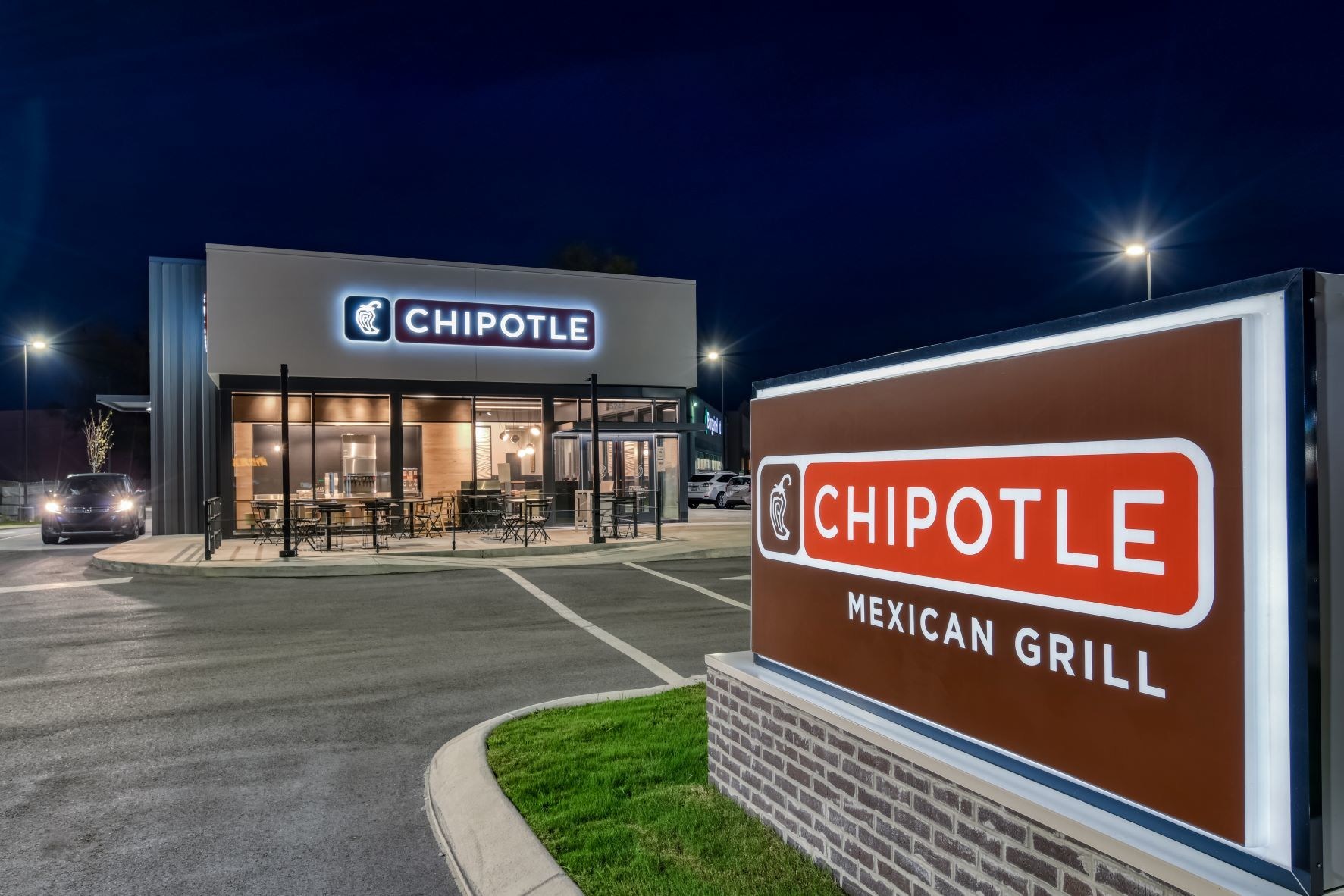
Chipotle Mexican Grill, Inc. (CMG) Sees Positive Outlook from Citigroup
- Citigroup upgraded Chipotle Mexican Grill, Inc. (NYSE:CMG) to "Positive" from "Buy," with a notable stock price increase.
- Chipotle is expanding its global footprint and investing in operational efficiency to maintain its high-quality offerings.
- The company is focusing on enhancing its loyalty programs and digital engagement to strengthen its brand and customer base.
Chipotle Mexican Grill, Inc. (NYSE:CMG) is a prominent player in the fast-casual dining sector, known for its commitment to "food with integrity." The company focuses on using high-quality ingredients and maintaining culinary consistency. Chipotle competes with other fast-casual chains like Qdoba and Moe's Southwest Grill. On October 3, 2025, Citigroup upgraded CMG's stock rating to "Positive" from "Buy," with the stock priced at $41.01.
Chipotle is actively expanding its footprint by opening new restaurants both in the U.S. and internationally. This expansion is supported by investments in equipment and preparation processes to maintain the speed, consistency, and quality of its offerings. The company's focus on scalable operations aims to increase throughput while preserving its culinary standards.
To strengthen its brand, Chipotle is enhancing its loyalty programs and digital engagement. The company also offers limited-time promotions to attract and retain customers. These initiatives are part of Chipotle's strategy to build a strong brand presence and customer base, which is crucial for its growth.
The current stock price of CMG is $41.30, marking a 2.55% increase. The stock has risen by $1.03 today, with a trading range from $40.17 to $41.43. Over the past year, CMG's stock has seen a high of $66.74 and a low of $38.30. The company's market capitalization stands at approximately $55.37 billion, with a trading volume of 7.07 million shares.
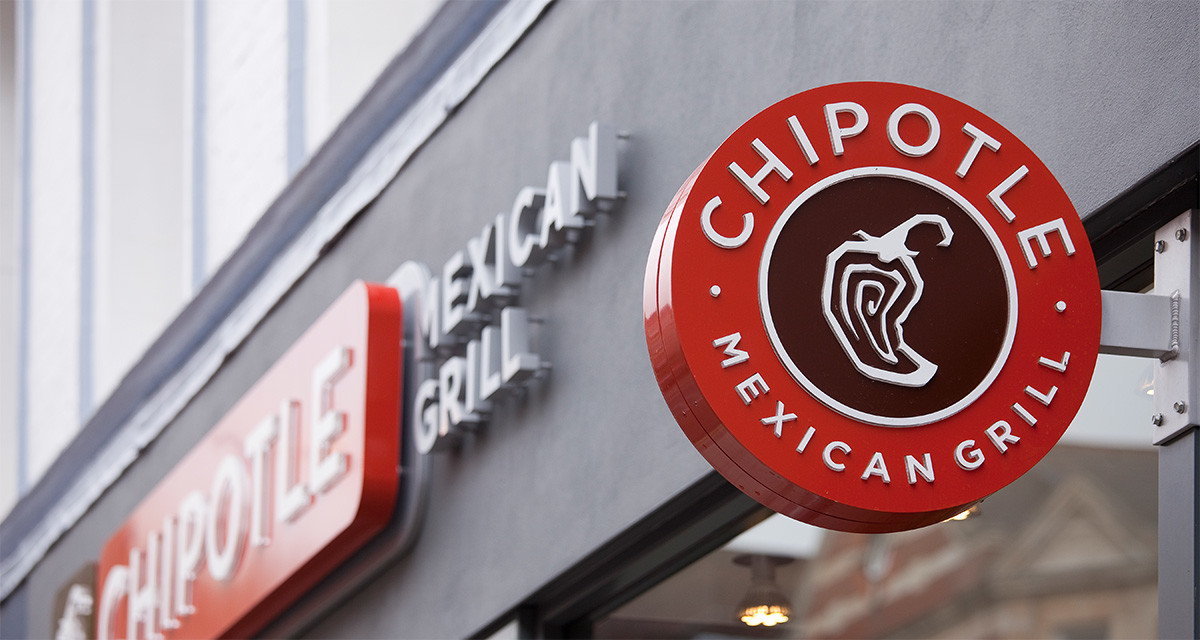
Piper Sandler Upgrades Chipotle to Overweight, Shares Gain
Piper Sandler upgraded Chipotle Mexican Grill (NYSE:CMG) from Neutral to Overweight, setting a price target of $50.00, down from $53.00. Shares rose more than 3% intra-day following the call.
The firm cited an attractive risk-reward profile, noting potential for roughly 20% upside in a base-case scenario assuming 3% comparable sales growth over the next two years. While acknowledging investor debate over whether Chipotle can maintain mid-single-digit same-store sales growth, Piper Sandler believes the market has largely priced in a softer growth outlook for next year.
The analysts recognized potential top-line risks in the second half of this year and maintained earnings estimates below consensus. However, they noted that with shares down about 31% year-to-date, much of the negative sentiment may already be reflected in the stock.
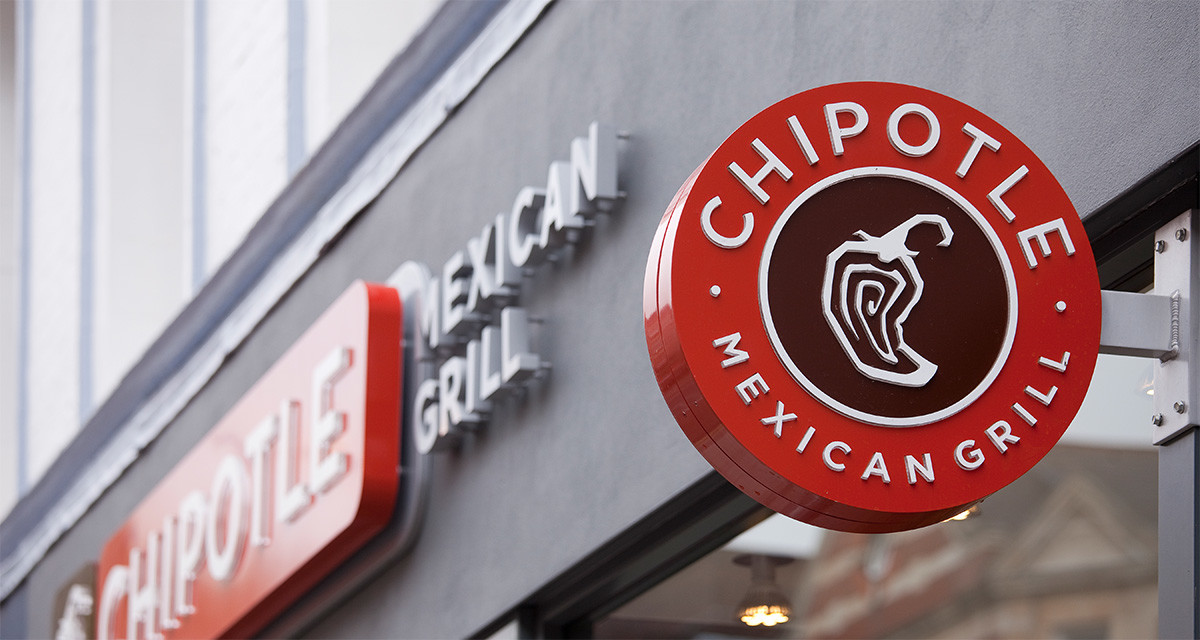
Chipotle Shares Slide 10% on Weak Comps and Soft Outlook
Chipotle Mexican Grill (NYSE:CMG) shares dropped 10% in premarket trading Wednesday after the company delivered a mixed second-quarter report and issued a conservative full-year sales forecast.
Adjusted earnings per share came in at $0.33, slightly beating analyst estimates. However, revenue rose 3.0% year-over-year to $3.1 billion, just under Wall Street’s $3.11 billion forecast.
Comparable restaurant sales fell 4.0%, driven by a 4.9% decline in customer visits, which was only partly offset by a 0.9% increase in average transaction size. Despite some positive traction in June, overall performance disappointed investors.
"We are seeing momentum build as we rolled out our summer marketing initiatives and as our comparisons ease," said CEO Scott Boatwright.
Profitability metrics weakened, with operating margin slipping to 18.2% from 19.7% a year earlier, while restaurant-level margins declined to 27.4% from 28.9%. Rising ingredient costs—especially for steak and chicken—and softer traffic weighed on margins despite earlier price hikes.
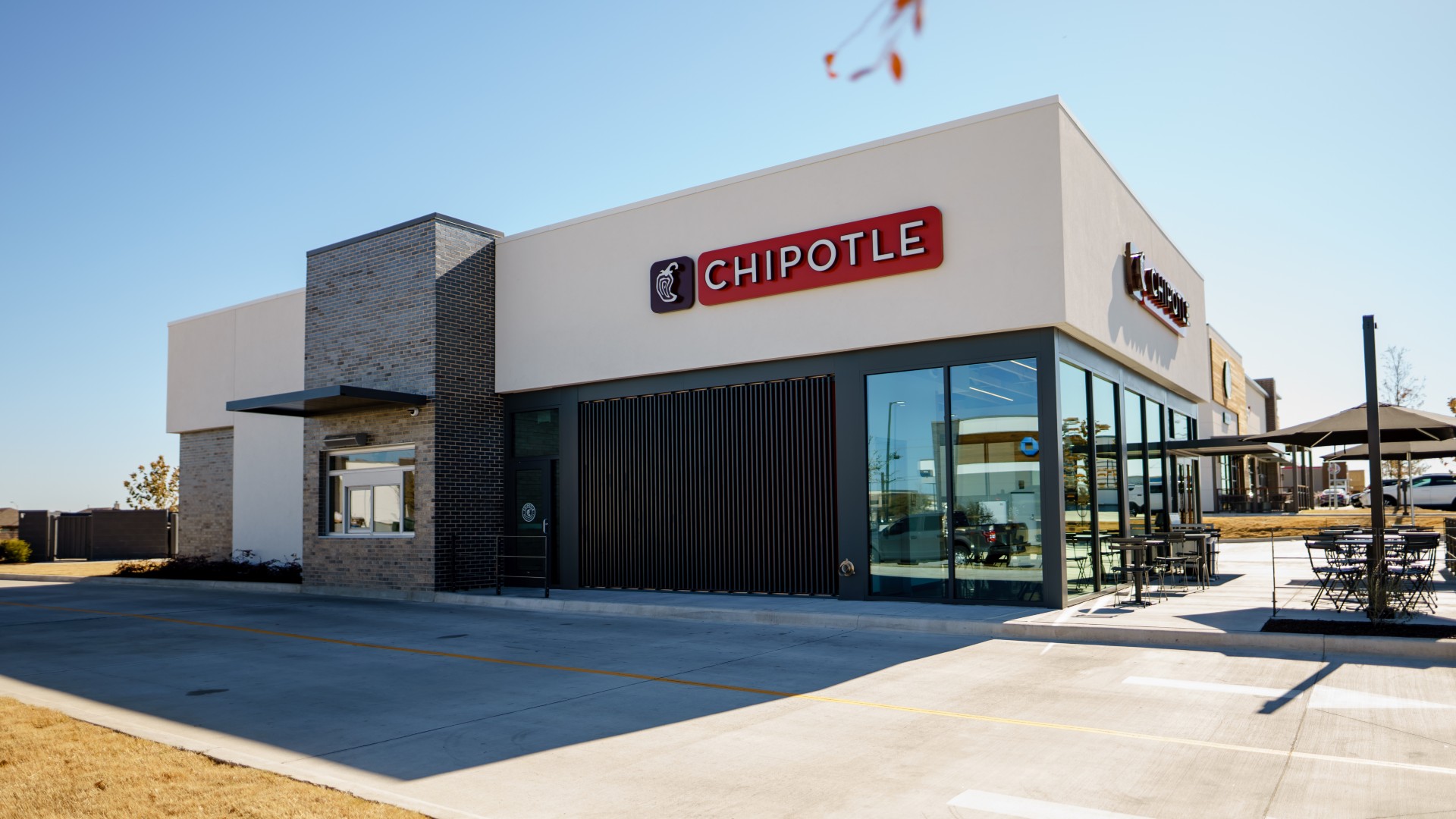
Chipotle Mexican Grill, Inc. (CMG) Earnings Report Analysis
- Earnings Per Share (EPS) Beat: Chipotle reported an EPS of $0.25, surpassing the Zacks Consensus Estimate.
- Revenue Miss: Despite the EPS beat, Chipotle's revenue of $2.85 billion slightly missed the estimated figure.
- Market Valuation Metrics: Chipotle's financial metrics, including a P/E ratio of 54.35 and a price-to-sales ratio of 7.32, highlight its market valuation.
Chipotle Mexican Grill, Inc. (NYSE:CMG) is a prominent player in the fast-casual dining sector, known for its focus on fresh ingredients and customizable menu options. Competing with other fast-casual chains like Qdoba and Moe's Southwest Grill, Chipotle has carved out a significant market share. The company operates numerous locations across the United States and internationally.
On February 4, 2025, Chipotle reported earnings per share (EPS) of $0.25, surpassing the Zacks Consensus Estimate of $0.24. This marks an improvement from the previous year's EPS of $0.21. Despite this positive earnings performance, the company's revenue of approximately $2.85 billion slightly missed the estimated figure, leading to a decline in its share price.
The market's reaction to Chipotle's earnings report underscores the importance of meeting revenue projections. As highlighted by Barrons, the shortfall in revenue has affected investor confidence, despite the earnings beat. Analysts attribute the disappointing sales figures to factors like tougher year-over-year comparisons, adverse weather conditions, and holiday timing.
Chipotle's financial metrics provide insight into its market valuation. The company has a price-to-earnings (P/E) ratio of 54.35, indicating that investors are willing to pay over 54 times its earnings. The price-to-sales ratio is 7.32, and the enterprise value to sales ratio is 7.67, reflecting the company's valuation relative to its sales.
The enterprise value to operating cash flow ratio stands at 45.67, showing the company's valuation in relation to its cash flow from operations. Chipotle's earnings yield is 1.84%, representing the return on investment for shareholders. With a debt-to-equity ratio of 1.24 and a current ratio of 1.62, Chipotle maintains a moderate level of debt and a healthy liquidity position.

Chipotle Mexican Grill, Inc. (CMG) Earnings Report Analysis
- Earnings Per Share (EPS) Beat: Chipotle reported an EPS of $0.25, surpassing the Zacks Consensus Estimate.
- Revenue Miss: Despite the EPS beat, Chipotle's revenue of $2.85 billion slightly missed the estimated figure.
- Market Valuation Metrics: Chipotle's financial metrics, including a P/E ratio of 54.35 and a price-to-sales ratio of 7.32, highlight its market valuation.
Chipotle Mexican Grill, Inc. (NYSE:CMG) is a prominent player in the fast-casual dining sector, known for its focus on fresh ingredients and customizable menu options. Competing with other fast-casual chains like Qdoba and Moe's Southwest Grill, Chipotle has carved out a significant market share. The company operates numerous locations across the United States and internationally.
On February 4, 2025, Chipotle reported earnings per share (EPS) of $0.25, surpassing the Zacks Consensus Estimate of $0.24. This marks an improvement from the previous year's EPS of $0.21. Despite this positive earnings performance, the company's revenue of approximately $2.85 billion slightly missed the estimated figure, leading to a decline in its share price.
The market's reaction to Chipotle's earnings report underscores the importance of meeting revenue projections. As highlighted by Barrons, the shortfall in revenue has affected investor confidence, despite the earnings beat. Analysts attribute the disappointing sales figures to factors like tougher year-over-year comparisons, adverse weather conditions, and holiday timing.
Chipotle's financial metrics provide insight into its market valuation. The company has a price-to-earnings (P/E) ratio of 54.35, indicating that investors are willing to pay over 54 times its earnings. The price-to-sales ratio is 7.32, and the enterprise value to sales ratio is 7.67, reflecting the company's valuation relative to its sales.
The enterprise value to operating cash flow ratio stands at 45.67, showing the company's valuation in relation to its cash flow from operations. Chipotle's earnings yield is 1.84%, representing the return on investment for shareholders. With a debt-to-equity ratio of 1.24 and a current ratio of 1.62, Chipotle maintains a moderate level of debt and a healthy liquidity position.

Truist Reaffirms Buy Rating on Chipotle Following Recent CEO Appointment
Truist Securities analysts reiterated a Buy rating and $72.00 price target on Chipotle Mexican Grill (NYSE:CMG), viewing the recent appointment of Scott Boatwright as permanent CEO as a positive move for the company. Recognizing Chipotle as a fundamentally operations-focused business, the analysts see Boatwright’s experience as aligning well with the company’s strengths.
Chipotle’s appeal to consumers has remained steady, with a core menu that has largely been consistent since the company’s founding. Recent sales growth has been driven by factors such as seasonal menu innovations, increased digital sales, and stronger marketing efforts.
However, Truist believes Chipotle’s operational improvements have been the primary catalyst for its sustained recovery since its food-safety challenges in 2015-2016. Boatwright, who previously served as Chief Operating Officer since joining Chipotle in 2017, brings extensive experience in operational leadership from his 18-year tenure at Arby’s, where he last held the position of Senior Vice President of Operations.







